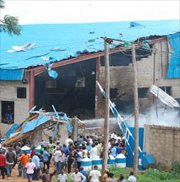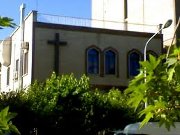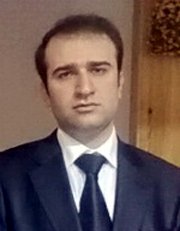 |
| The bombed Shalom Church in Kaduna (Compass Direct photo) |
Nigeria (MNN) ― For the third consecutive weekend, Nigerian churches faced a series of bombings, resulting in at least 50 deaths. Over 100 more were injured.
Three attacks occurred on Sunday, June 17. Two suicide bombings happened near churches within Zaria. Compass Direct News reports that a blast at the Evangelical Church Winning All (ECWA) killed 24, while an attack at a Catholic Church killed 16.
Thirty minutes later, a Pentecostal congregation called Shalom Church near Kaduna was bombed, killing at least 10.
Compass Direct News reports that a majority of those killed and injured in the attack series were children.
Terrorist group Boko Haram claimed responsibility for the June 3 and June 10 bombings, and sources say the group has now owned up to the June 17 attacks as well. Boko Haram has been clear about its intentions to wipe Christians off the map of northern Nigeria.
"It's becoming more and more the norm when Christians gather for worship to have bombings and car bombings in northern Nigeria," says Todd Nettleton with Voice of the Martyrs.
Nettleton says as a result, churches are upping their security. "More and more of the churches in Nigeria are posting guards at the gate. They are building gates to the church property. They are trying to minimize the danger that they face from this type of attack. At the same time, the very message of the Gospel is a message for everyone."
It's difficult to think this way when families are in danger, though. Some believers are going as far as to retaliate. Reuters reports that after the Kaduna bombing, Christian youths blocked the highway. Witnesses claim the young people were pulling Muslims out of cars and killing them.
Nettleton notes, "It's easy to sit in a comfortable church in the United States and feel safe and say, ‘They really shouldn't strike back. They really shouldn't try to get vengeance.' But if you think about it, if your family was being attacked, if your wife, if your children are being attacked, the drive to protect them and the drive even toward vengeance would be very strong."
But of course, that drive doesn't negate Christ's command to turn the other cheek. Nettleton says the most significant need now is for prayer.
"One of the ways that I think is really important for us to pray is for wisdom for the Christians in northern Nigeria, and especially the leadership within the churches to know how to respond, and to know how to lead their people to respond to these kinds of attacks. We're called on to pray for those who persecute us. We're called on to love our enemies as followers of Christ. That's a very hard thing to do when you go to church on Sunday realizing that there's a very real danger that there will be a bombing and you or some of your family won't make it home safely after the service."
Pray that the Holy Spirit would intercede to allow believers to love their enemies, to reach out with the Good News, and to keep from striking back.
VOM Medical responds to victims of attacks like these. Click here to help them.



